For those who believe in destiny, it was compelling evidence the stars were about to align once again for the Brazil national team.
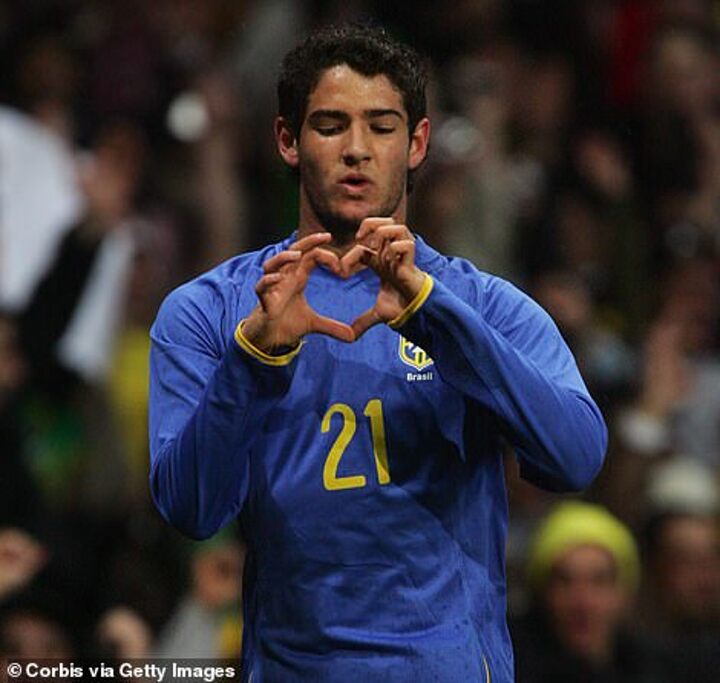
In a friendly match arranged to mark 50 years since 17-year-old Pele scored twice to help Brazil win their first World Cup against Sweden, here was another exciting teenager making a breakthrough on the international stage.
Of course, Alexandre Pato wasn't a complete unknown. He played for AC Milan, the reigning European champions, and his reputation was long-established in South America. But here he was announcing himself to the rest of the world with an audacious lob from what seemed an impossible angle.
After Brazil's 1-0 win at the Emirates Stadium that night, Brazil manager Dunga, a man who rarely gets carried away with anything, said: 'His style of play is similar to that of Ronaldo. I don't think he is a normal talent.'
Pele. Ronaldo. 'The new Kaka' at Milan. It seemed no comparison was too lofty for Pato, just the latest Brazilian wonderkid poised to take the world by storm.
No doubt mention of him will trigger something in the dusty nooks of most football fans' memories. Oh yes, what did happen to Pato?
Well, as we shall see, his fall was equally as spectacular as his rise with the boy with the world at his feet playing for Tianjin Tianhai in the Chinese Super League when he should have been approaching his peak.
His real name was Alexandre Rodrigues da Silva but he was born in the city of Pato Branco, which translates into English as 'White Duck'. As a result he acquired the nickname 'Duck' or literally 'Alexandre Duck'.
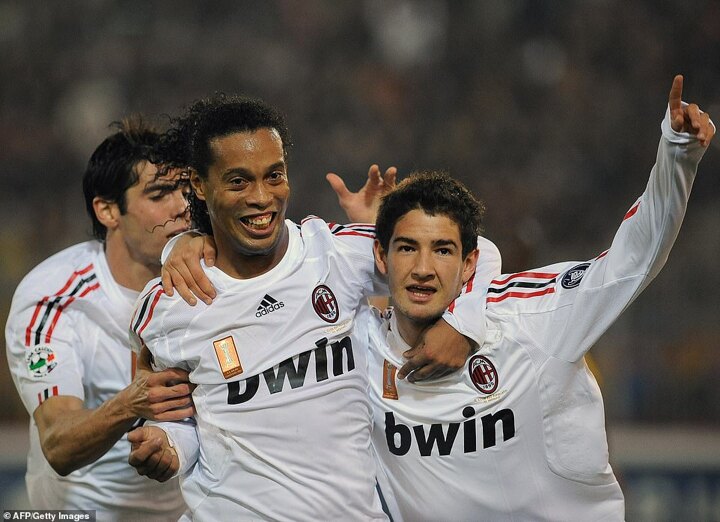
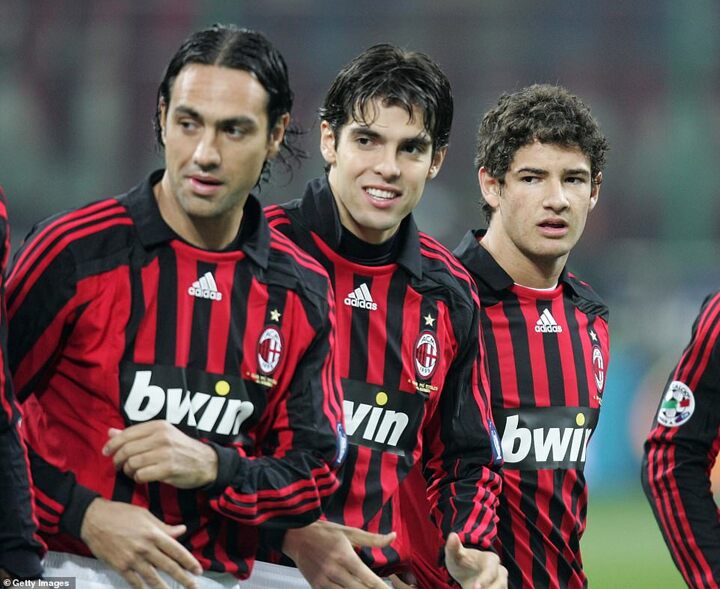
Pato defied the odds before his football career had even started. When he broke his arm aged 11 it was discovered he had a tumour and for a while it was touch and go whether the arm would have to be amputated.
In the end, the tumour was surgically removed without the need to take off his limb.
Having risen through the youth ranks at Internacional, Pato burst onto the scene aged 17 by scoring on his Brazilian championship debut at Palmeiras in November 2006.
It was the start of a trend - Pato also scored on his debuts for AC Milan, Chelsea, Corinthians and Brazil.
A month later, he broke Pele's long-standing record as the youngest ever scorer in a FIFA-organised competition by netting against Al Ahly in the Club World Cup, a competition Internacional won.
Like so many talented Brazilians, Pato was fast-tracked to Europe, signing for Milan in August 2007 for a fee of €24million.

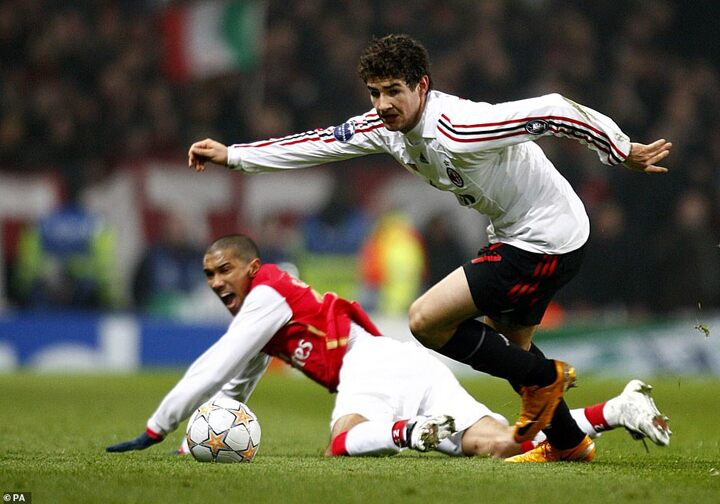
It was quite the daunting dressing room to walk in to, especially with such a large price tag around his neck.
This was a Milan side packed with serial champions - Ronaldo, Kaka, Andrea Pirlo, Filippo Inzaghi, Gennaro Gattuso, Clarence Seedorf, Paolo Maldini, Cafu, Dida.
Still they made the 17-year-old feel welcome. As Pato recalled: 'When I arrived in Milan, I met many really great players.
'In the dressing room, I was sat between Maldini and Ronaldo, who asked me if I wanted to be part of his clan, showing me a copy of Playboy, or if I wanted to be part of Kaka's clan, who had a few church things.'
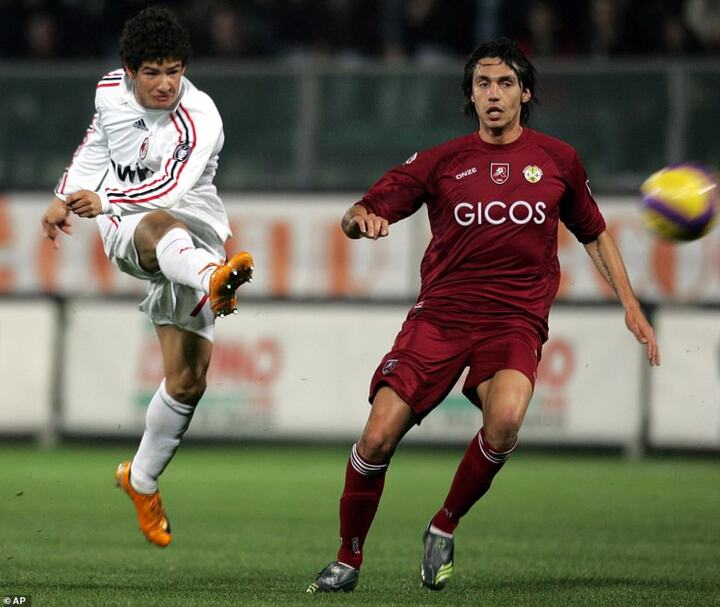
Not that Pato was seeing too clearly. The Milan doctor had given him some eye drops during his medical and so his vision was blurry when formally introduced to coach Carlo Ancelotti and his new team-mates.
But there was no discombobulation on the pitch, with Pato starting his Milan career brilliantly with nine goals in 20 appearances during his debut campaign. The following year, he was the club's leading scorer with 18.
Pato had three very good years at the San Siro but towards the end of the 2009-10 campaign came the first injury issues that would send his career into a tailspin.
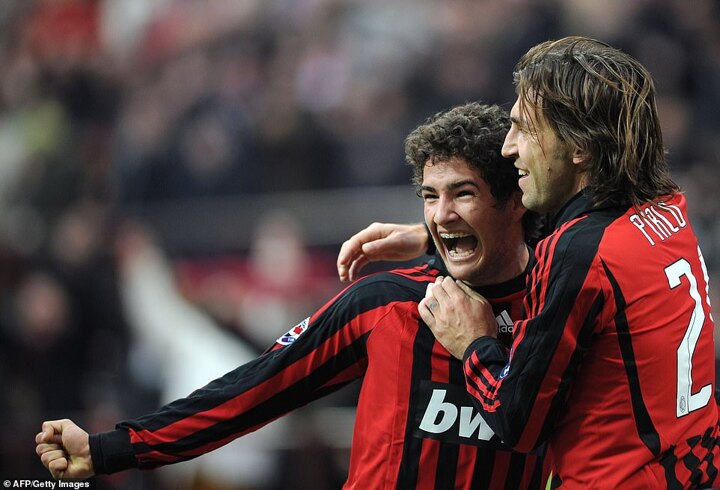
His hamstring was most problematic, going three times within the space of a year, then issues with other thigh muscles saw him restricted to just 25 appearances in his final two seasons with Milan.
It also cost Pato a place in the Brazil squad for the 2010 World Cup, which would have been the next level up in his trajectory though there were more headlines about 17-year-old Neymar's absence. You're never the future for long in Brazil.
The constant injury setbacks also led to whispers about the impact of his social life which was, to say the least, lively.
When Pato admitted 'I like having girlfriends' he wasn't exaggerating. Just months after arriving in Italy, the teenager was engaged to model Sthefany Brito, who he met on a swimsuit photoshoot.
Following an on-off relationship, they married in a lavish £170,000 ceremony at the five-star Copacabana Palace in Rio de Janeiro in July 2009, wearing matching Dolce and Gabbana outfits.
The marriage lasted a mere nine months and ended with a bitter legal wrangle in which Brito blamed their split on Pato's constant partying with Ronaldinho, who signed for Milan a year after him.
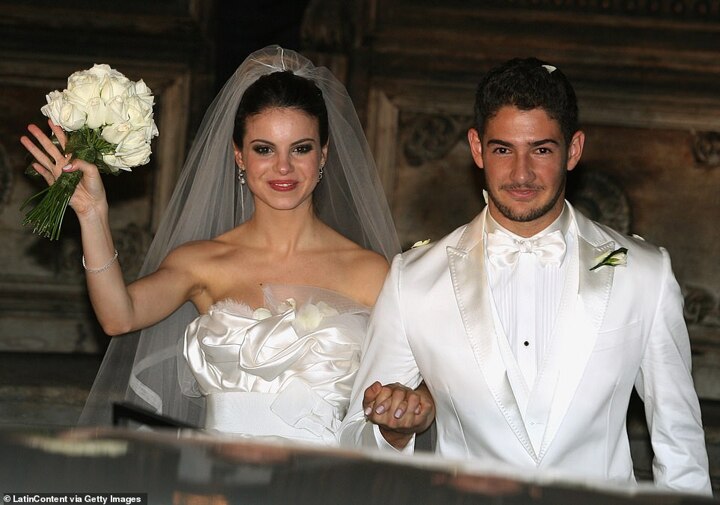
Clearly not too heartbroken, Pato was romantically linked to the reigning Miss Brazil, Debora Lyra, in 2010.
And later that year he began a relationship with Barbara Berlusconi, the daughter of the former Italian prime minister and then Milan owner, Silvio.
'I feel like a normal young woman who has fallen for a man who attracts her,' Barbara, five years Pato's senior, told the Italian edition of Vanity Fair. 'I don't consider it a breach of etiquette.
'This relationship is not a whim or a moment of madness. I would not be with him if I wasn't in love with him.'
For a time Pato would celebrate his goals by making a heart symbol to the director's box and it was reported that Barbara prevented him being shipped out to PSG. But their relationship ended after two-and-a-half years.
Even Milan's renowned sports science department couldn't fix Pato and the club decided to cut their losses by selling him to Brazilian club Corinthians for £11.5m in January 2013.
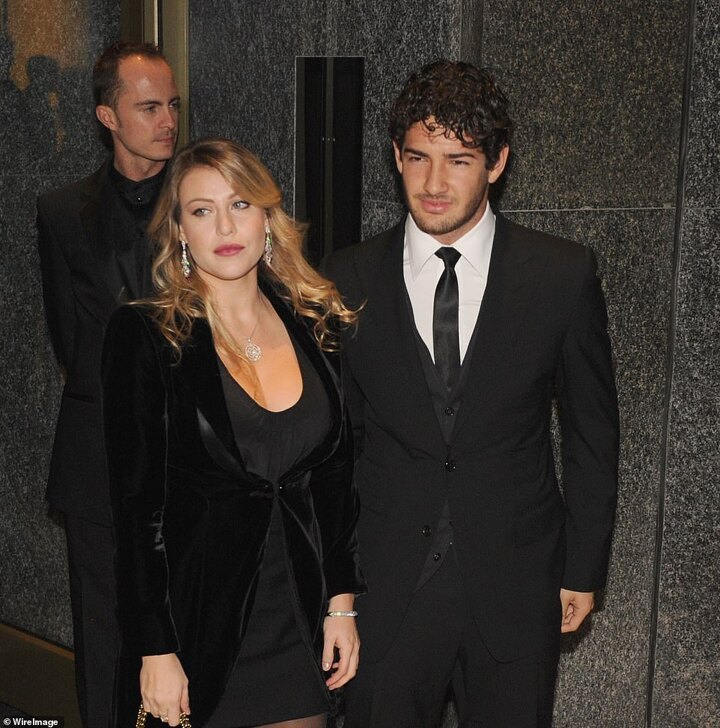
Not that this was the end of the world. Pato had done so much, so young he was still only 24 and could rebuild his reputation in his homeland.
Within a year, he had been branded one of the worst signings Corinthians had ever made.
His sluggish performances were blamed initially on the pressure of his high transfer fee but eventually they were put down to a general lack of effort and a dressing room rift caused by the fact Pato earned significantly more than his team-mates.
Edu, now Arsenal's technical director, was on the board at Corinthians at the time and said: 'He didn't have the guts that our supporters demand of any player we sign.
'It's not that he should have been mean on the pitch, but to have a little bit of knife between his teeth.'
The nadir arrived in the quarter-finals of the 2013 Brazilian Cup when a hard-fought but scoreless match with Gremio went to penalties.
Pato needed to score to keep Corinthians in the competition but stupidly decided to attempt a Panenka that he scuffed, allowing his former Milan team-mate Dida to make an easy save.
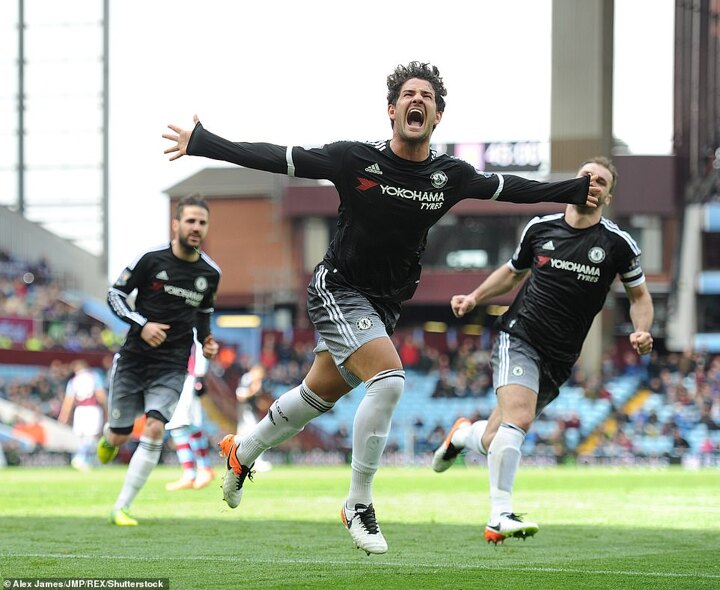
'I remember that it was difficult to hold back everyone to not hit him,' said left-back Fabio Santos. 'The fans already wanted to fight him, even the players wanted to do it.
'If it wasn't for two or three who were there to calm down the others, I don't know what could have happened.'
Almost being beaten up by his own team-mates focused Pato's mind and he performed well on a subsequent loan spell at Sao Paulo in 2014 and 2015, scoring 38 goals to encourage whispers of a Brazil recall.
Then came a bizarre twist. On January 26, 2016, Pato signed for Chelsea on loan.
Interim Chelsea manager Guus Hiddink, who'd replaced Jose Mourinho six weeks earlier, saw no reason to believe the signing was a risk but also knew Pato wouldn't have too many opportunities.
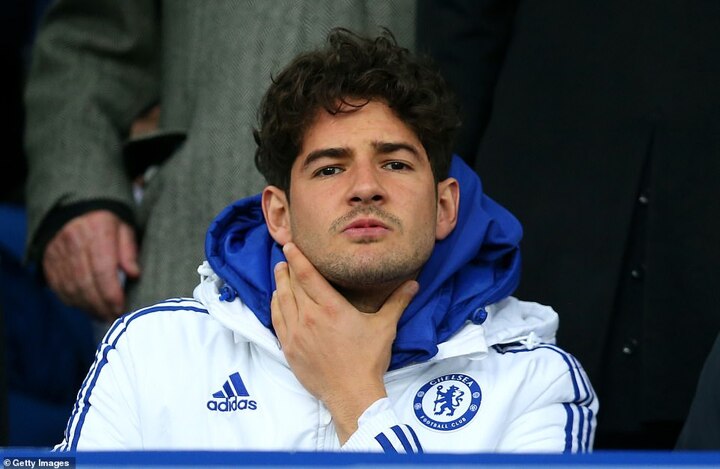
Having not played since November, Pato naturally had to regain his match fitness but it took until April 2 for the Brazilian to actually make his debut, scoring a penalty against Aston Villa.
Despite Chelsea paying the entirety of his £30,000-a-week wages, there seemed little urgency to get him involved. In the end, Pato played just twice for the London club and his time there is very easily forgotten.
At the time, Pato turned down wages of €680,000-a-month to sign for Tianjin Quanjian, managed by former Brazil boss Vanderlei Luxemburgo, to come to Chelsea.
But in January 2017, after a forgettable spell at Villarreal, Pato did arrive at the Chinese Super League club.
Trouble was, despite everything, Pato was far too good for the standard in China. Videos of him roasting opponents quickly went viral and he scored 36 times in 60 outings in his two years there.
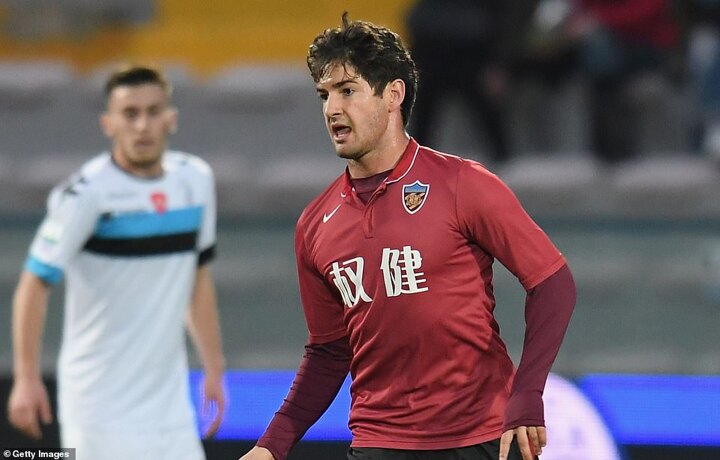
Life was good again but everything was turned on its head when Pato returned from holiday to China for the start of the 2019 campaign.
Quanjian are a herbal medicine company based in Tianjin and the parent company of the club. Days earlier, their chairman Shu Yuhui and 17 employees had been arrested on suspicion of false marketing and operating pyramid schemes.
The football club quickly rebranded themselves Tianjin Tianhai and amid speculation they could be kicked out the league, Pato beat a hasty retreat.
There was speculation that AC Milan might take him back on a free but Pato, at the age of 30, now finds himself back in his homeland with Sao Paulo and scoring goals.
One thing is for certain: Pato being Pato, his stay won't be dull.
